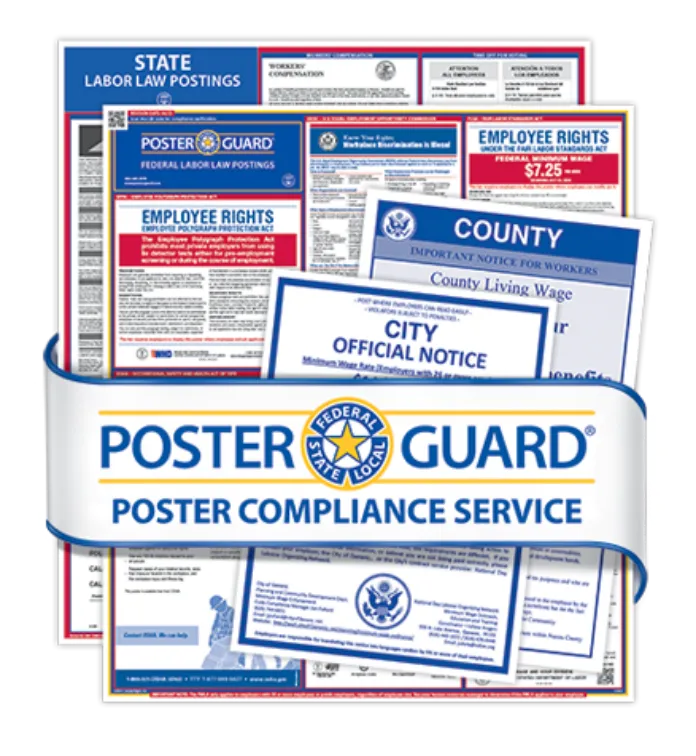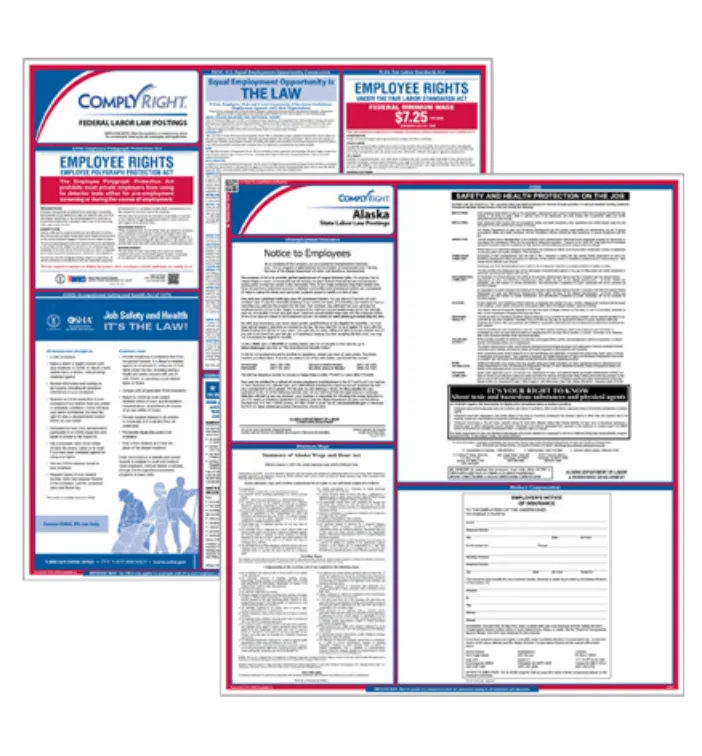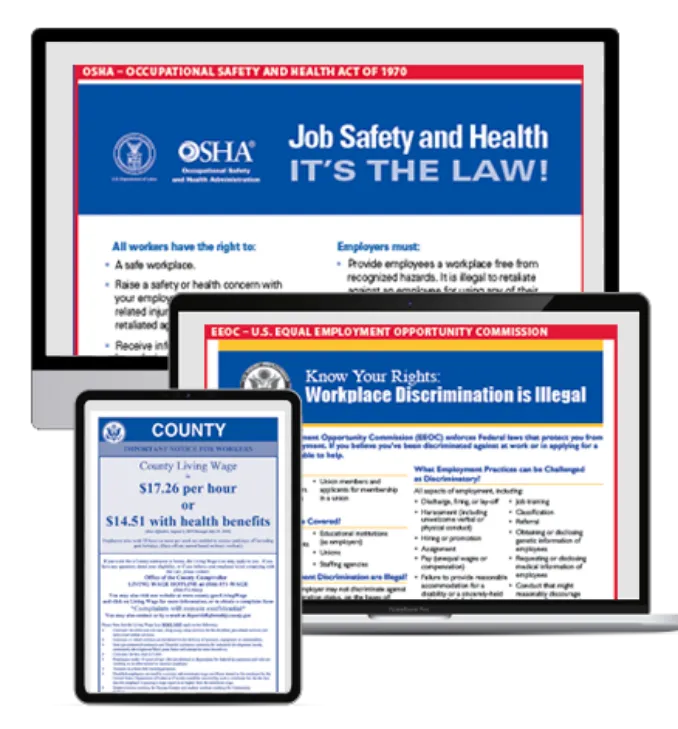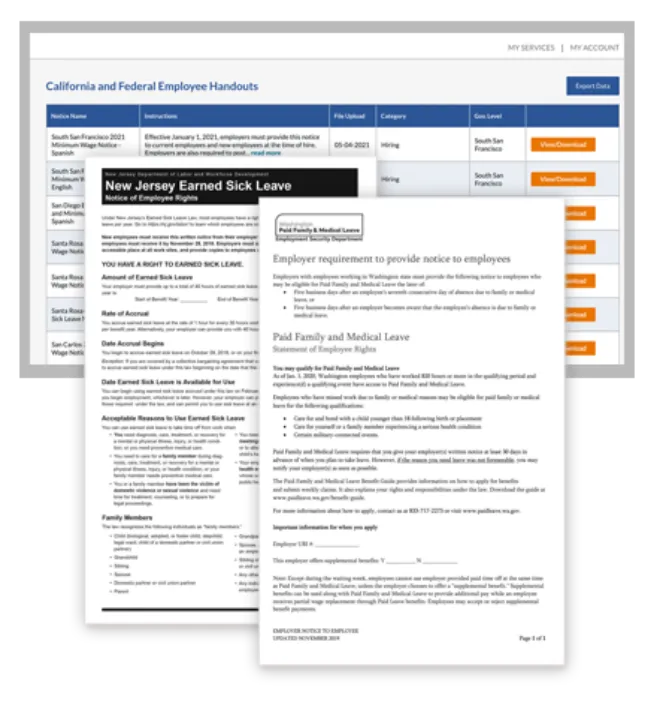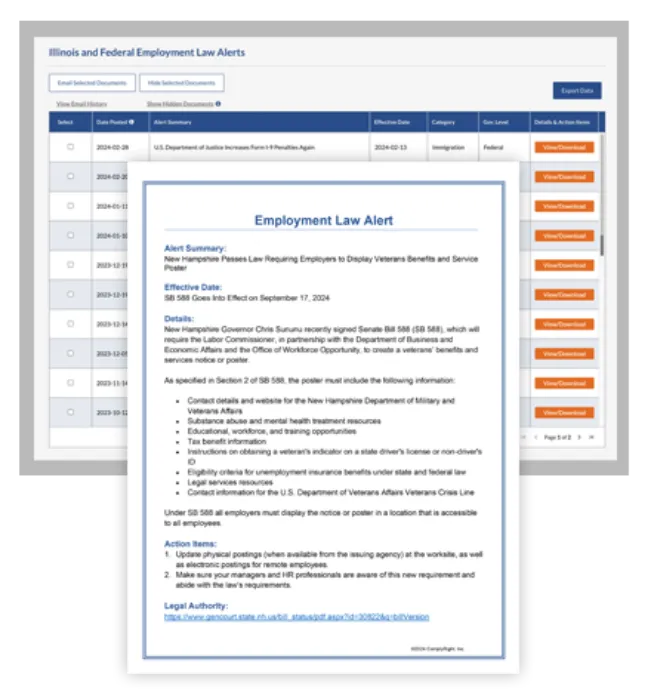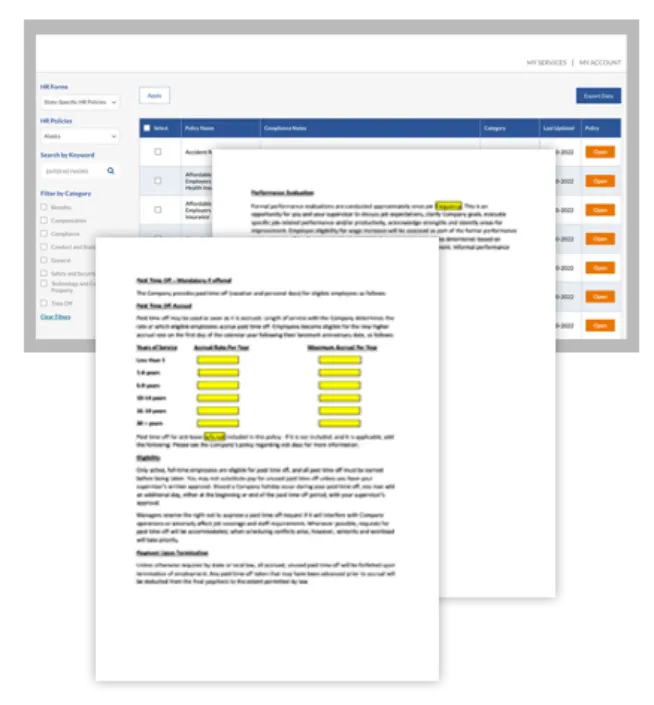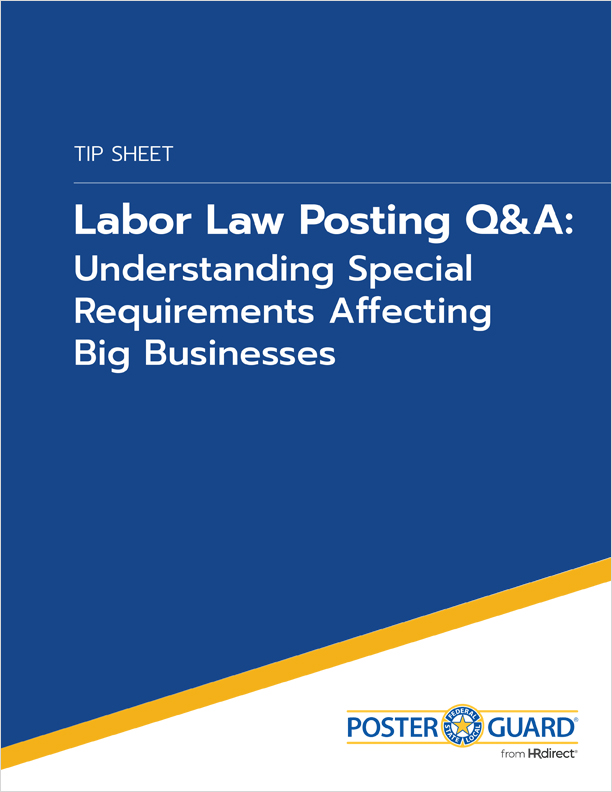The pace of labor law posting changes isn’t slowing down. In fact, the next 15 months promise a wave of updates that will impact workplaces nationwide. From a closely watched EEOC revision to sweeping paid family and medical leave programs and rising minimum wages, employers should be prepared for a busy compliance season.
Staying current isn’t optional: Every one of these updates will require new postings in the workplace to ensure employees are informed of their rights.
Here’s a look at the biggest changes on our radar:
An Emerging Federal Posting Affecting Most Employers
The first major change on the horizon is at the federal level. The EEOC Know Your Rights: Workplace Discrimination is Illegal poster is undergoing revisions to reflect recent presidential executive orders. Although the agency has announced the update, no official release date has been set.
The revisions are expected to remove references to gender identity as a synonym for sex and eliminate the section about Executive Order 11246, aligning the poster with the new federal directives. This update affects nearly all U.S. employers with 15 or more employees, as well as federal contractors.
Covered employers should continue displaying the current poster, revised June 27, 2023, and be prepared to replace it once the new version is released.
The takeaway from this flurry of labor law changes is clear: Employers need to update their workplace posters to maintain compliance.
State-Level Posting Changes We’re Monitoring
State governments are leading the way with immediate updates. From minimum wage hikes to new paid family and medical leave programs, several states will roll out new posting requirements between late 2025 and mid-2027. These are the most significant changes employers need to know:
- Florida: Minimum wage rises to $14.00 per hour effective September 30, 2025
- Pennsylvania: A new Veterans Benefits Workplace poster, effective October 5, 2025, must be displayed in all workplaces
- Minnesota: Paid Family and Medical Leave notice required December 1, 2025, ahead of the January 2026 rollout granting up to 20 weeks of paid leave
- Colorado: Paid Family and Medical Leave poster effective January 1, 2026, reflecting expanded benefits for parents of NICU children and updated premium rates
- Delaware: Paid Family and Medical Leave poster required January 1, 2026, under the Healthy Delaware Families Act
- Missouri: Minimum wage climbs to $15.00 per hour January 1, 2026
- New York: Minimum wage increases to $16.00 per hour January 1, 2026
- Oregon: Paid Sick Time poster updated January 1, 2026, allowing sick time for blood donation
- Rhode Island: Minimum wage rises to $16.00 per hour January 1, 2026, with a second increase to $17.00 set for January 1, 2027
- Washington: Rights as a Worker poster updated January 1, 2026, to include new protections for hate crime victims — as well as the Paid Family and Medical Leave maximum weekly benefit increasing
- Alaska: Minimum wage increases to $14.00 per hour on July 1, 2026, and $15.00 per hour on July 1, 2027
And this is just the beginning. Dozens of cities are expected to announce their own minimum wage adjustments, and additional states will issue CPI-based wage updates in the months ahead.
Staying Ahead of a Fast-Changing Compliance Landscape
With so many changes on the way, it’s clear that posting compliance is more complex than ever. Employers face an ongoing stream of new requirements at every level of government — and missing even one update can put you at risk. With Poster Guard® Poster Compliance Service, you’re covered 365 days a year with automatic poster replacements, backed by a dedicated legal team. It’s the easiest way to ensure your business is fully compliant today and ready for what’s ahead in 2026.

